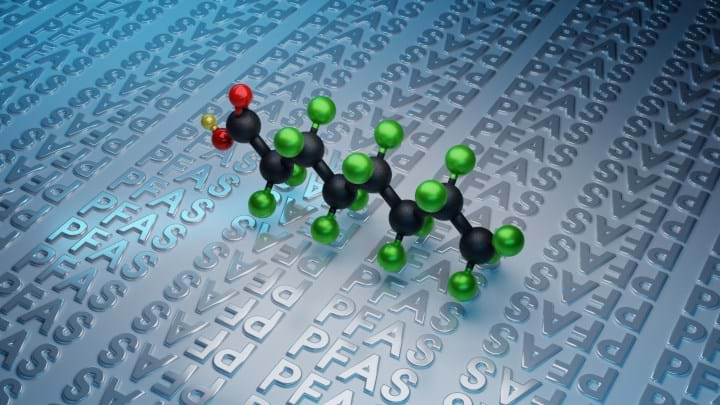Chemical companies urge MPs to be lenient with PFAS ban

MAJOR chemical producers have urged UK MPs to not follow in the EU’s footsteps with banning specific PFAS chemicals on the claim that some are less harmful than others, according to an analysis from ENDS Report and The Guardian.
The analysis looked into the responses that the Environmental Audit Committee (EAC), which is part of the UK House of Commons in Parliament, received during its inquiry into PFAS in May.
PFAS, short for per- and polyfluoroalkyl substances, cover more than 14,000 synthetic chemicals found in a range of everyday products including cosmetics, food packaging, and textile and fabric treatments.
Because they are highly resistant to degradation, PFAS substances are used in a wide range of industries but those same properties make them a persistent pollutant when they escape into the environment. Concerns about their use is growing with research showing that exposure to PFAS may increase the risks of cancers and birth defects.
The ENDS Report analysis shows chemical companies have asked MPs not to regulate chemicals called fluoropolymers in the same way as all PFAS chemicals on the basis that they are “not that harmful.”
Defining PFAS
Chemical companies that responded to the inquiry have a particular issue with the Organisation for Economic Co-Operation and Development (OECD) definition of PFAS.
The OECD has specified that the longevity of the chemical in the environment was a key and defining characteristic. This definition extends to fluoropolymers and has been taken into consideration by the European Chemicals Agency (ECHA) when restricting PFAS. The EU is currently looking to ban PFAS in consumer products, with its environment commissioner Jessika Roswell saying that a ban is likely to be imposed next year.
AGC Chemicals, a chemical producer based in Blackpool, said: “Although fluoropolymers fit the PFAS structural definition, they are fundamentally different and should not be grouped together with other PFAS, which may be of concern since sources demonstrate that fluoropolymers have a low hazard profile, are non-toxic, not-bioavailable, non-water soluble, non-mobile, do not bioaccumulate, and have not demonstrated negative human health impacts.”
According to the ENDS Report analysis, chemicals producers have claimed that fluoropolymers, when they are made and put into products, are stable. They give the example of the Teflon frying-pan, where harmful chemicals are not released if the pan is used “properly”.
Though the EU is putting fluoropolymers under the same categories, in contrast the Canadian government has excluded them from its classification of PFAS, due to their difference in stability.
However, these claims, as the analysis points out, does not consider what happens to those chemicals once those products are sent to landfills and incinerated. Past research has found that between 1950 and 2004, 72% of global emissions of the PFAS types PFOA and PFOS were linked to fluoropolymer production.
UK regulation
The EAC’s inquiry sought to provide evidence on whether the UK’s current regulation of PFAS “goes far enough”. There are currently no specific standards for PFAS in drinking water in England and Wales, nor standards listed in the Water Quality Regulations for PFAS.
The Drinking Water Inspectorate has however issued guidance for water companies to enforce a cumulative limit of 100 ng/l for 48 PFAS to ensure that water is sufficiently “wholesome”.
When deciding on what PFAS to restrict, the EAC has stated that for chemicals deemed “critical”, MPS will ask witnesses which industries rely on PFAS and how feasible is it to find an alternative.
A recent TCE special looked at the work engineers are doing to remediate and destroy PFAS.
Recent Editions
Catch up on the latest news, views and jobs from The Chemical Engineer. Below are the four latest issues. View a wider selection of the archive from within the Magazine section of this site.




